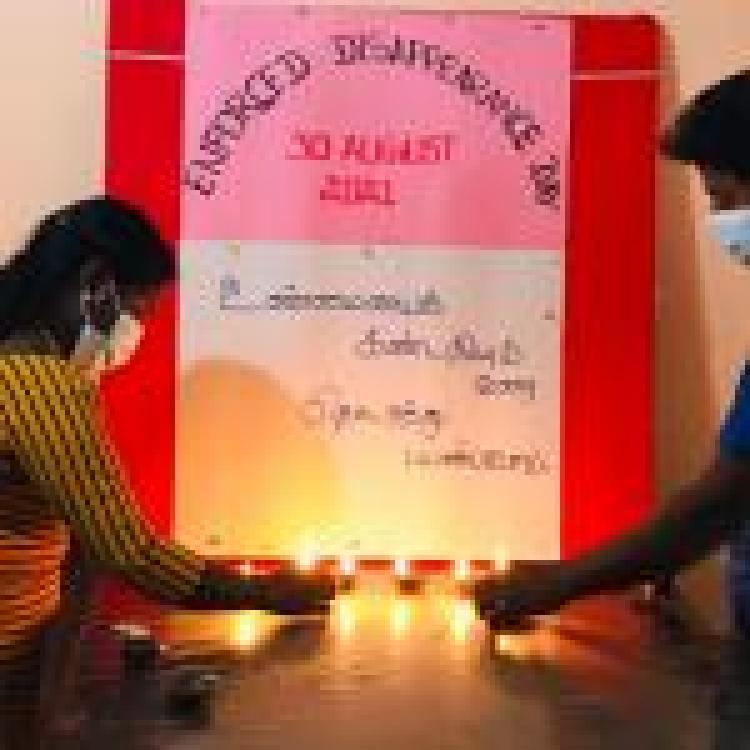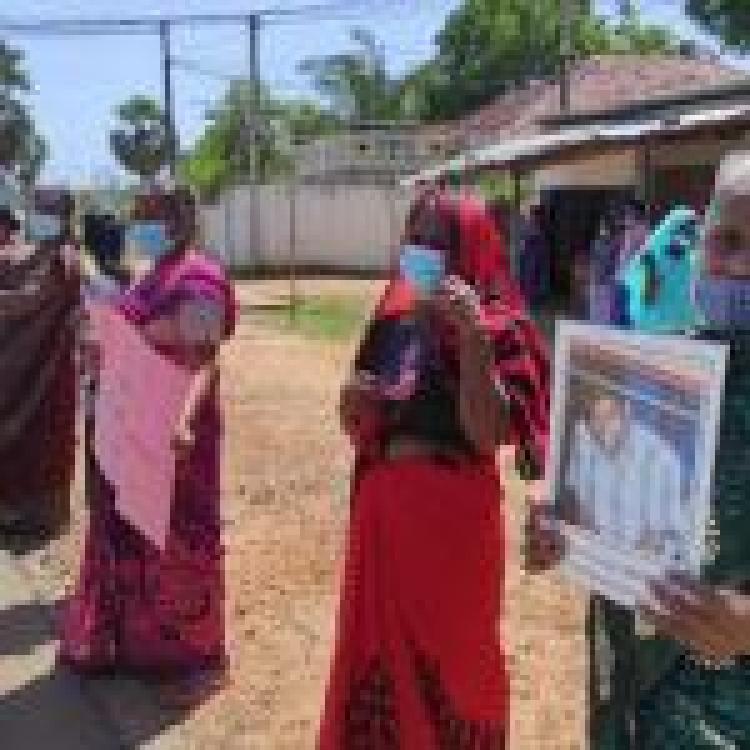![]()
In a letter written by the Association for Relatives of the Enforced Disappearances (ARED) to the UN High Commissioner for Human Rights Michelle Bachelet, ahead of the 48th UNHRC session, the families expressed their anguish regarding the failure of international action to bring them justice. The Association criticised the ineffectiveness of the Office of Missing Persons (OMP) and urged the High Commissioner to “mete out justice before we die.”
Titled “Thrusting OMP on the victims in lieu of fair justice,” the missive laid out Sri Lanka’s repeated failure to reveal the whereabouts of the forcibly disappeared Tamils and listed examples of cases when the state’s actions prevented justice from being delivered to their relatives.
The examples included the presidential amnesty given to Sunil Ratnayake who was convicted for the murder of eight Tamils and the summary rejection by courts of habeas corpus petitions filed by relatives of the disappeared, on flimsy grounds.
The letter pointed out the ineffectiveness of the OMP and called the UN Residential Representative’s recent favourable assessment of it “utterly absurd.” “We are very much concerned over her ignorance regarding the OMP,” the Association asserted.
The Association also described the secrecy with which the OMP operated, which ultimately caused it to defeat the purpose of its establishment. “All the activities were carried out in the most confidential manner without any transparency. Even the OMP offices were opened in the utmost secrecy regardless of our protest,” the letter added.
The Association called attention to the issue that international pressure on Sri Lanka to deliver justice to the relatives of the disappeared Tamils is reducing and the current government on the island is bent on making it a non-issue. The government’s efforts are aided by the military, which is used to intimidate the relatives who demand justice. The letter made the following comment on the military’s role in browbeating the Tamils:
“On the whole what we understand is that the Sri Lankan Government is trying to dilute the enforced disappearance matter. Military intelligence group (sic) are intimidating our association members who are functioning actively in our struggle and those who are working hard to take this matter to the international level. Family members also have been intimidated by military intelligence group.”
The letter also lamented the protracted nature of the Association’s struggle to obtain justice. “We have been protesting for more than 1660 days, with a bereavement of more than 100 association members, in order to find out what had happened (to) our disappeared loved ones,” it emphasised.
Finally, it expressed the Association’s disappointment at the High Commissioner’s “praise (of) the incompetent OMP which we had already rejected,” and ended by imploring her to “recommend for a justice mechanism with international investigation and mete out justice before we die.”
Read the full letter here.



